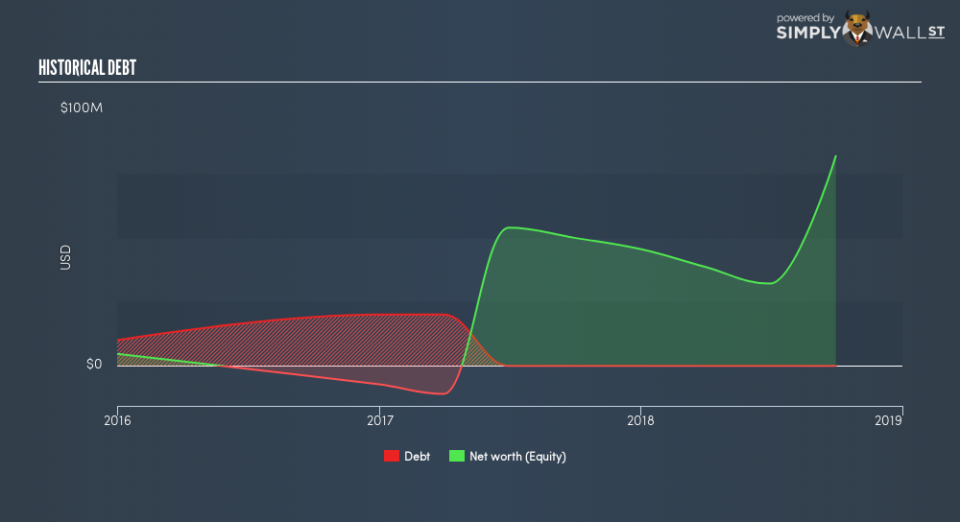Is Appian Corporation (NASDAQ:APPN) A Financially Sound Company?

Zero-debt allows substantial financial flexibility, especially for small-cap companies like Appian Corporation (NASDAQ:APPN), as the company does not have to adhere to strict debt covenants. However, it also faces higher cost of capital given interest cost is generally lower than equity. While zero-debt makes the due diligence for potential investors less nerve-racking, it poses a new question: how should they assess the financial strength of such companies? I will take you through a few basic checks to assess the financial health of companies with no debt.
View our latest analysis for Appian
Does APPN’s growth rate justify its decision for financial flexibility over lower cost of capital?
Debt funding can be cheaper than issuing new equity due to lower interest cost on debt. Though, the trade-offs are that lenders require stricter capital management requirements, in addition to having a higher claim on company assets relative to shareholders. Either APPN does not have access to cheap capital, or it may believe this trade-off is not worth it. This makes sense only if the company has a competitive edge and is growing fast off its equity capital. A double-digit revenue growth of 36% is considered relatively high for a small-cap company like APPN. So, it is acceptable that the company is opting for a zero-debt capital structure currently as it may need to raise debt to fuel expansion in the future.
Does APPN’s liquid assets cover its short-term commitments?
Given zero long-term debt on its balance sheet, Appian has no solvency issues, which is used to describe the company’s ability to meet its long-term obligations. But another important aspect of financial health is liquidity: the company’s ability to meet short-term obligations, including payments to suppliers and employees. Looking at APPN’s US$111m in current liabilities, the company has been able to meet these obligations given the level of current assets of US$188m, with a current ratio of 1.7x. For Software companies, this ratio is within a sensible range since there is a bit of a cash buffer without leaving too much capital in a low-return environment.
Next Steps:
As a high-growth company, it may be beneficial for APPN to have some financial flexibility, hence zero-debt. This may mean this is an optimal capital structure for the business, given that it is also meeting its short-term commitment. Moving forward, APPN’s financial situation may change. I admit this is a fairly basic analysis for APPN’s financial health. Other important fundamentals need to be considered alongside. I suggest you continue to research Appian to get a better picture of the stock by looking at:
Future Outlook: What are well-informed industry analysts predicting for APPN’s future growth? Take a look at our free research report of analyst consensus for APPN’s outlook.
Historical Performance: What has APPN’s returns been like over the past? Go into more detail in the past track record analysis and take a look at the free visual representations of our analysis for more clarity.
Other High-Performing Stocks: Are there other stocks that provide better prospects with proven track records? Explore our free list of these great stocks here.
To help readers see past the short term volatility of the financial market, we aim to bring you a long-term focused research analysis purely driven by fundamental data. Note that our analysis does not factor in the latest price-sensitive company announcements.
The author is an independent contributor and at the time of publication had no position in the stocks mentioned. For errors that warrant correction please contact the editor at editorial-team@simplywallst.com.

 Yahoo Finance
Yahoo Finance 
